- Details
- Category: Senator Suzy Glowiak Hilton News
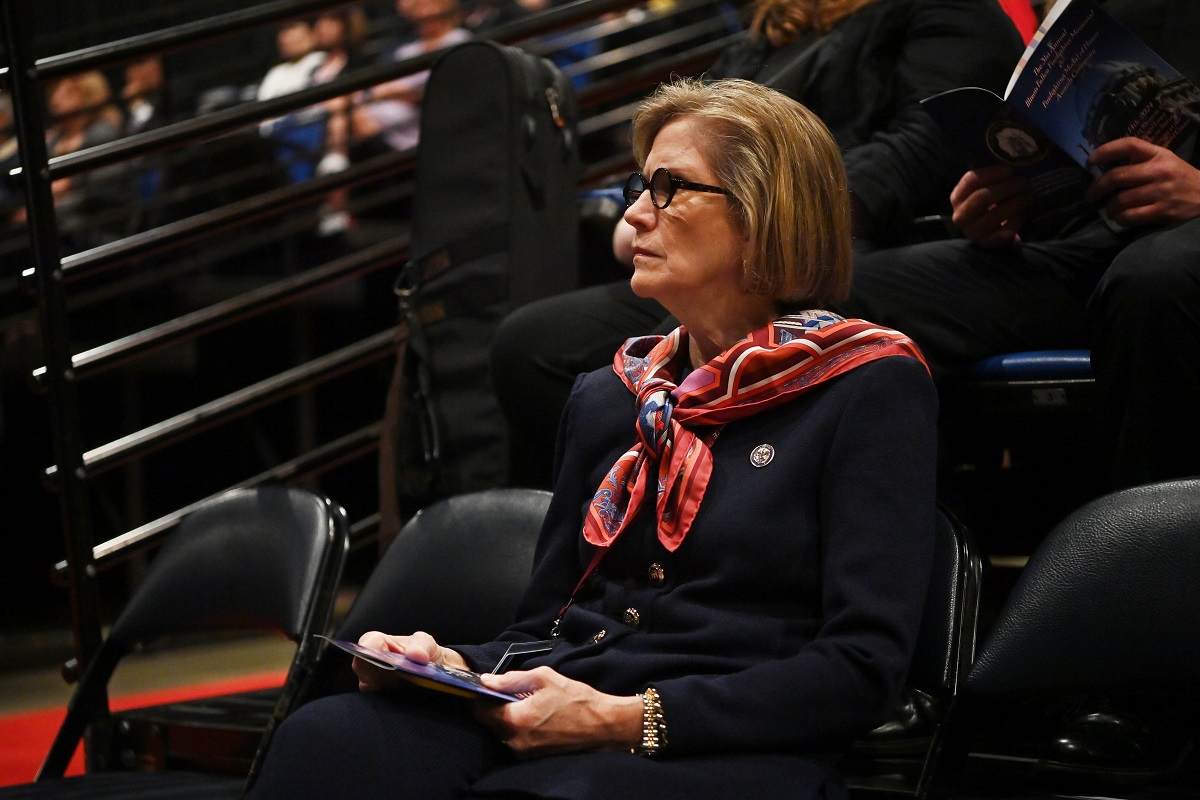 SPRINGFIELD – In an effort to make medication more accessible to Illinoisans, State Senator Suzy Glowiak Hilton is leading an initiative to prohibit pharmacists from refusing to fill a written prescription.
SPRINGFIELD – In an effort to make medication more accessible to Illinoisans, State Senator Suzy Glowiak Hilton is leading an initiative to prohibit pharmacists from refusing to fill a written prescription.
“If your doctor writes a prescription for medication you need, you should not be refused at your local pharmacy,” said Glowiak Hilton (D-Western Springs). “All residents should be able to access their medication regardless of how the prescription is sent to the pharmacy.”
In response to the opioid epidemic, legislators in Illinois passed a law in 2021 requiring prescriptions of controlled substances to be sent electronically. However, some pharmacists are now refusing to fill non-electronic prescriptions despite exceptions to the current law. House Bill 4874 would prohibit a pharmacist from refusing to fill a paper or non-electronic prescription.
Read more: Glowiak Hilton measure would prohibit pharmacy refusal of prescriptions
- Details
- Category: Senator Willie Preston News
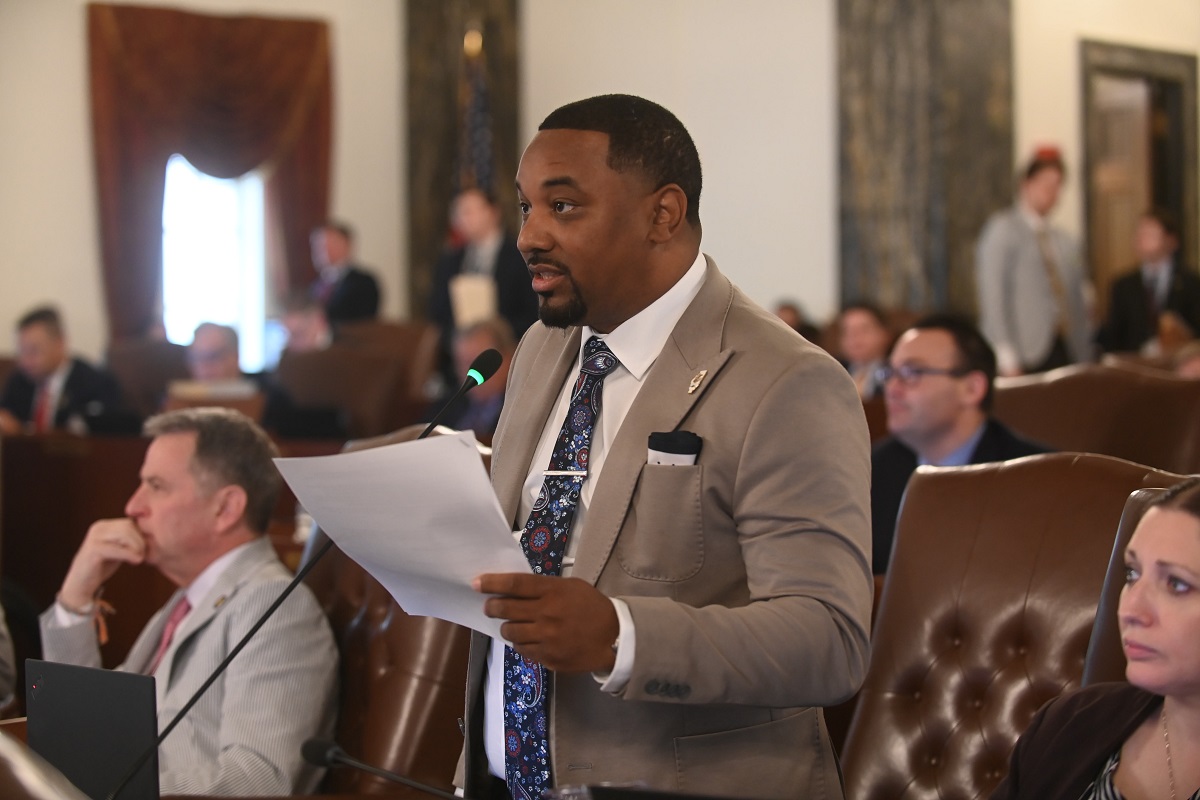 SPRINGFIELD – Emphasizing the critical need for improved access to colonoscopy screenings, State Senator Willie Preston joined State Representative Cyril Nichols at a press conference Wednesday to highlight a new measure, House Bill 2385, that would facilitate the early detection and prevention of colorectal cancer.
SPRINGFIELD – Emphasizing the critical need for improved access to colonoscopy screenings, State Senator Willie Preston joined State Representative Cyril Nichols at a press conference Wednesday to highlight a new measure, House Bill 2385, that would facilitate the early detection and prevention of colorectal cancer.
“Discussing colonoscopies may not be the easiest conversation to have, but it's a vital one, especially for Black men,” said Preston (D-Chicago). “Increasing access to colonoscopy screenings empowers individuals to take charge of their well-being and provides peace of mind through preventative care.”
Colorectal cancer is one of the leading causes of cancer-related deaths worldwide, yet it is highly preventable through early detection and removal of precancerous polyps. During the press conference, speakers emphasized the significance of regular screenings for individuals, especially Black men over the age of 39, as well as those with a family history of the disease or other risk factors.
Read more: Preston highlights the importance of removing barriers to preventative care
- Details
- Category: Senator Suzy Glowiak Hilton News
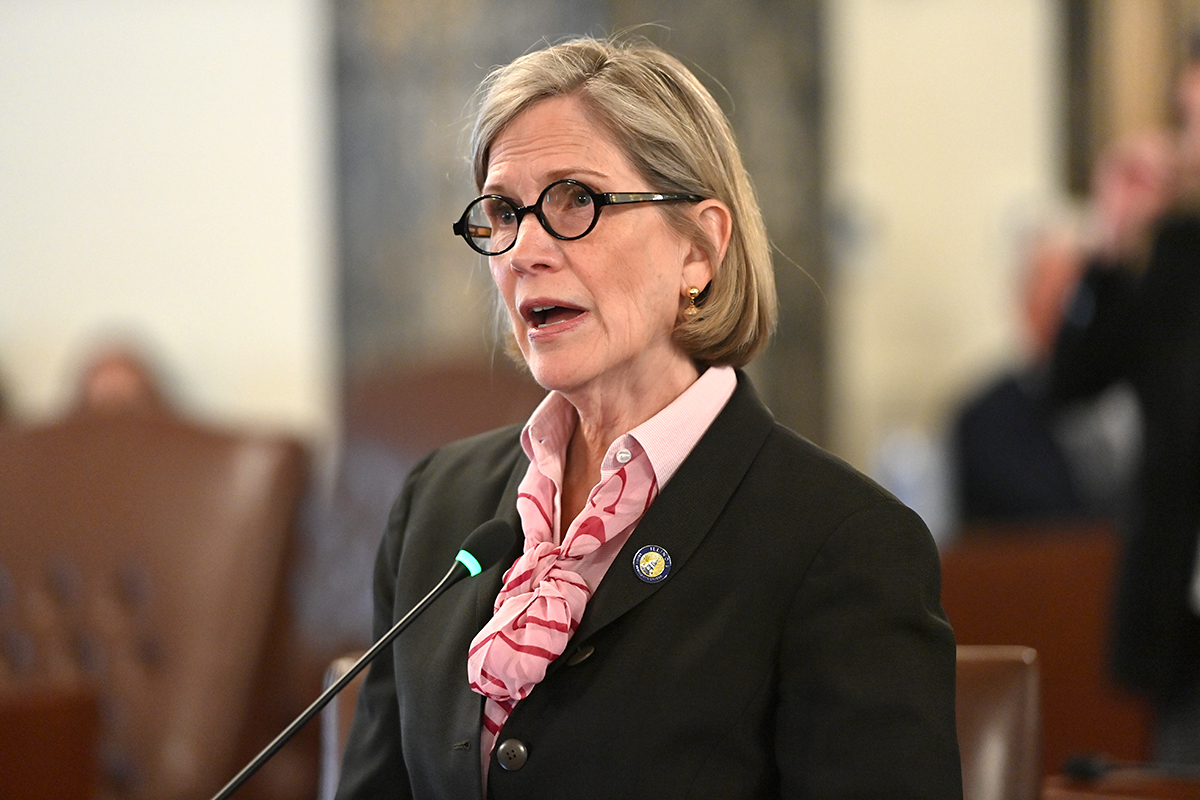
SPRINGFIELD – In an effort to bring more nurses to Illinois medical facilities, State Senator Suzy Glowiak Hilton advanced a measure to extend the time nurses can practice while waiting for the review of their license application.
“This measure would allow our nurses to continue to work and provide the care that many people need,” said Glowiak Hilton (D-Western Springs). “By providing our nurses with the opportunity to learn and build relationships with their patients they will have a better understanding of their work environment by the end of their application process.”
House Bill 5047 would allow advanced practice registered nurses with pending applications to practice under supervision for six months while waiting for the Illinois Department of Financial and Professional Regulation’s review of their application. Under current law, this status is revoked after three months. These nurses would need to have completed at least 250 hours of continuing education in their area of certification and have at least 4,000 hours of clinical experience to be applicable for this opportunity.
Read more: Glowiak Hilton initiative extends time nurses can practice during license review
- Details
- Category: Senator Dave Koehler News
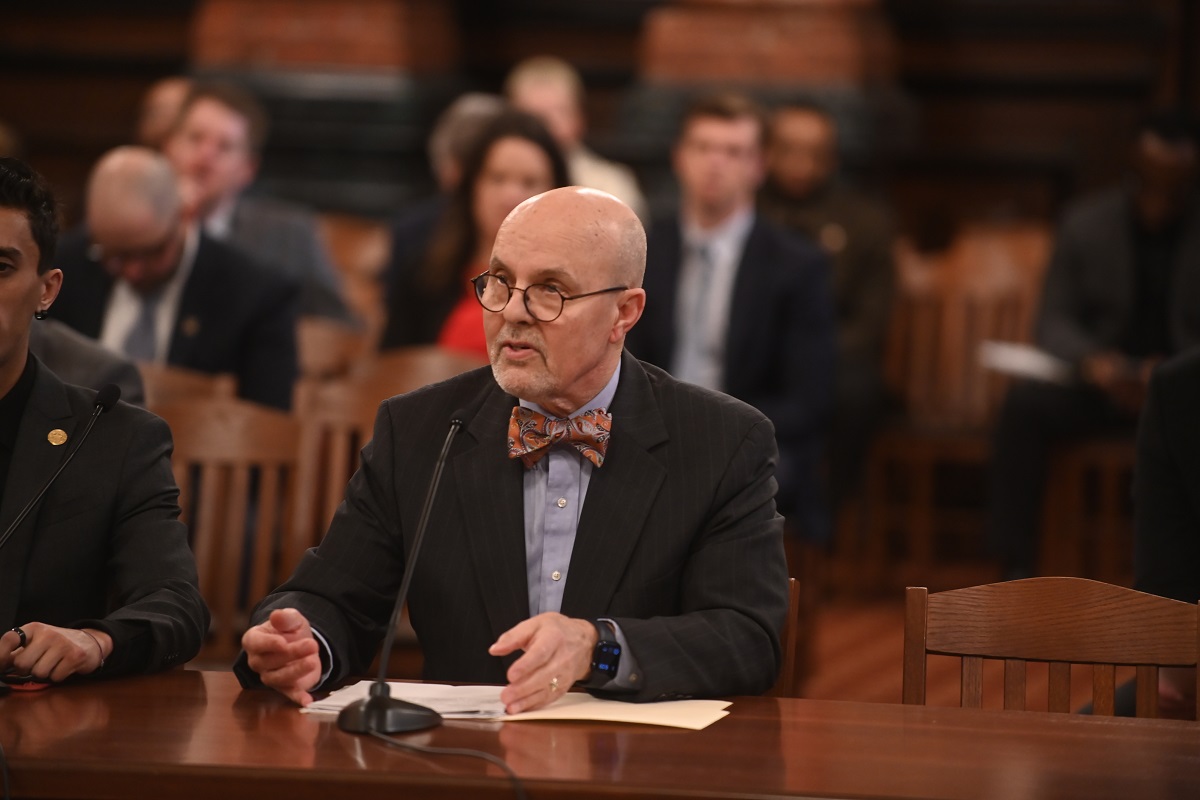 SPRINGFIELD – To help strengthen the creative arts economy in Illinois, State Senator Dave Koehler passed an initiative to form a Creative Economy Task Force to help the state attract and retain diverse businesses and talent.
SPRINGFIELD – To help strengthen the creative arts economy in Illinois, State Senator Dave Koehler passed an initiative to form a Creative Economy Task Force to help the state attract and retain diverse businesses and talent.
“Creative businesses employ thousands of Illinoisans from all backgrounds,” said Koehler (D-Peoria). “In today’s digital era, creative arts are a driving force for our economy. This legislation keeps us ahead of the curve and will promote job opportunities for those seeking new ventures.”
The arts and culture sector generates $31.1 billion in economic impact and employs over 190,000 workers in Illinois, making it the fifth largest state for arts and culture employment. Illinois arts deliver over $478 million in state and local government revenue each year.
Read more: Koehler measure would strengthen Illinois’ arts industry
- Details
- Category: Senator Doris Turner News

SPRINGFIELD – State Senator Doris Turner (D-Springfield) released the below statement in response to the U.S. Postmaster General’s decision to move the Springfield Post Office’s distribution to St. Louis:
“The decision to convert the Springfield Post Office into a local processing center is extremely disappointing and will have lasting effects on residents across Central Illinois. There is no reason for our mail to be diverted out of state, but sadly this is our new reality.
“I joined hundreds of residents, postal workers and local elected officials at a town hall on March 26 to share our grave concerns about the proposal. USPS did not listen to our community. This will not only slow down mail delivery time, but also create life threatening hardships for those who rely on the mail service for their medication needs, especially our seniors.
“Springfield is home to Illinois’ state government. Why are we delaying delivery of important documents by sending them to Missouri? This is a poor decision that will affect each and every one of us.”
- Details
- Category: Senator Napoleon Harris III News
 SPRINGFIELD – State Senator Napoleon Harris, III advanced a measure on Tuesday to increase transparency of homeowner insurance policy coverage.
SPRINGFIELD – State Senator Napoleon Harris, III advanced a measure on Tuesday to increase transparency of homeowner insurance policy coverage.
“When you choose a homeowner insurance policy you should have a full picture of what the policy covers,” said Harris (D-Harvey). “This legislation empowers homeowners to make educated financial decisions about their homeowner insurance policies.”
House Bill 5357 would require an insurer to disclose whether a homeowner's insurance policy covers damage from a sewer backup or overflow from a sump pump when issuing or quoting a homeowner's policy. Further, the measure would require insurance companies to offer the policyholder an opportunity to purchase this coverage if the policy does not already include it.
Read more: Harris advances measure to increase transparency for homeowners
- Details
- Category: Senator Adriane Johnson News
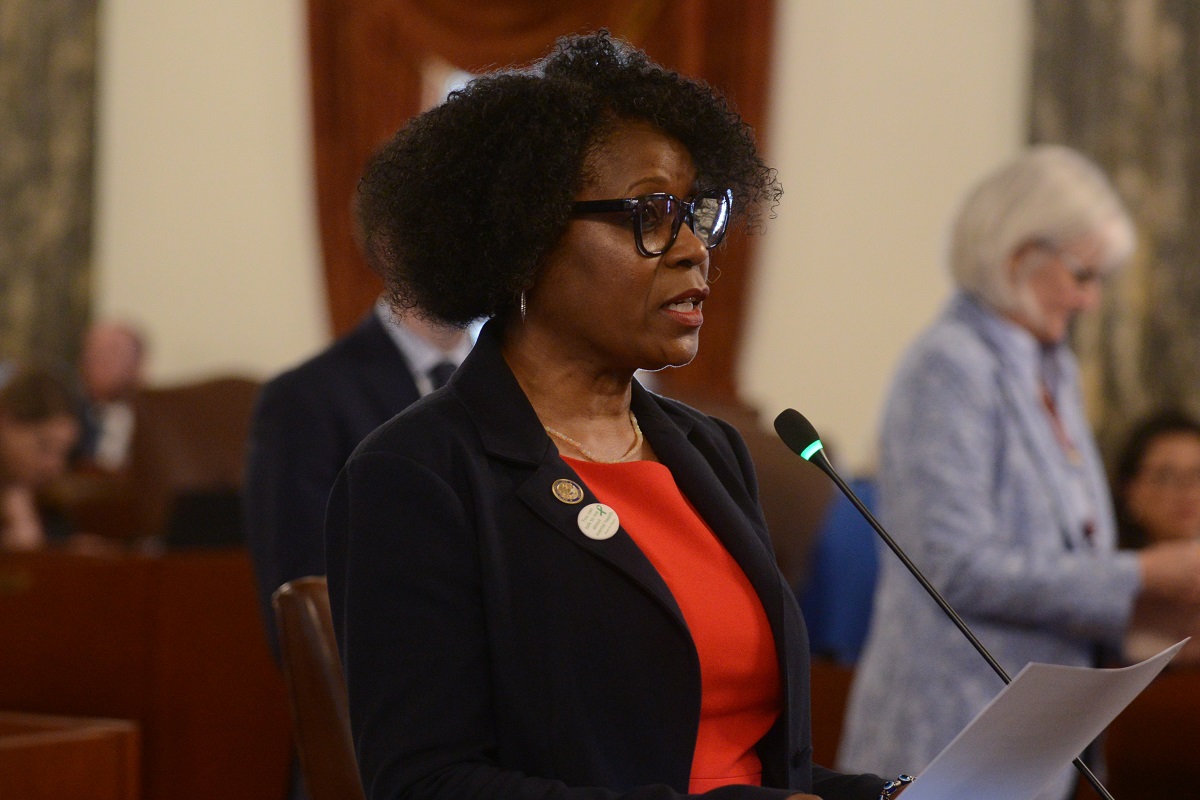
“Minority groups and under resourced communities are disproportionately impacted by asthma, pollution and viral illness,” said Johnson (D- Buffalo Grove). “Schools should be a safe place – yet many are under-ventilated. It is necessary that we study the poor air quality in schools and identify solutions.”
House Bill 4903 would task the Illinois State Board of Education, in consultation with the Illinois Department of Public Health, to compile resources to assess air quality and maintain ventilation systems in schools. ISBE would implement outreach strategies to make these resources available to elementary and secondary schools.
Read more: Johnson advances measure to ensure quality air ventilation in public schools
- Details
- Category: Senator Julie A. Morrison News
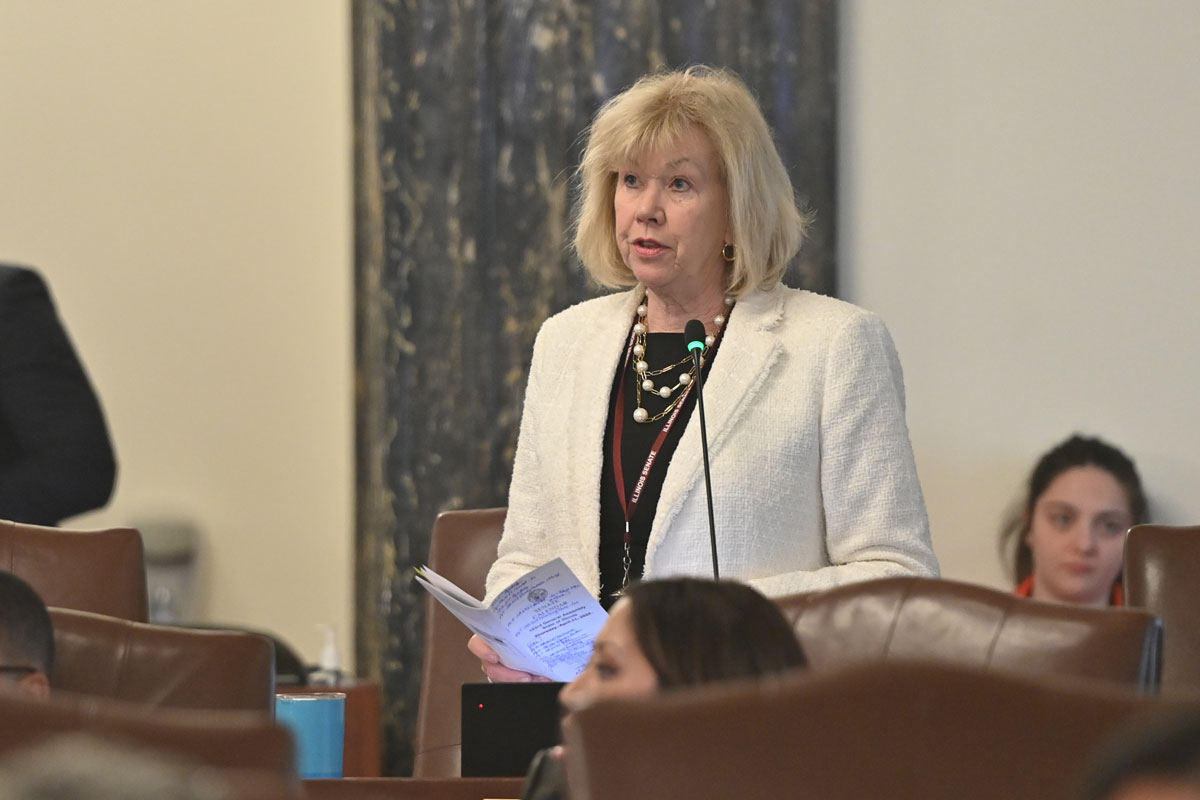 SPRINGFIELD – Finding out your vehicle is totaled can be a difficult situation and the last thing you want to do is research the cost of each part of your car. State Senator Julie Morrison introduced a measure to require vehicle insurance companies to do that work for you.
SPRINGFIELD – Finding out your vehicle is totaled can be a difficult situation and the last thing you want to do is research the cost of each part of your car. State Senator Julie Morrison introduced a measure to require vehicle insurance companies to do that work for you.
“I am committed to increasing transparency between insurance companies and consumers,” said Morrison (D-Lake Forest). “This initiative will save people time and energy during an already trying occurrence.”
Read more: Morrison to provide options on how to handle totaled vehicles
More Articles …
Page 117 of 768













 © 2026 Illinois Senate Democratic Caucus
© 2026 Illinois Senate Democratic Caucus